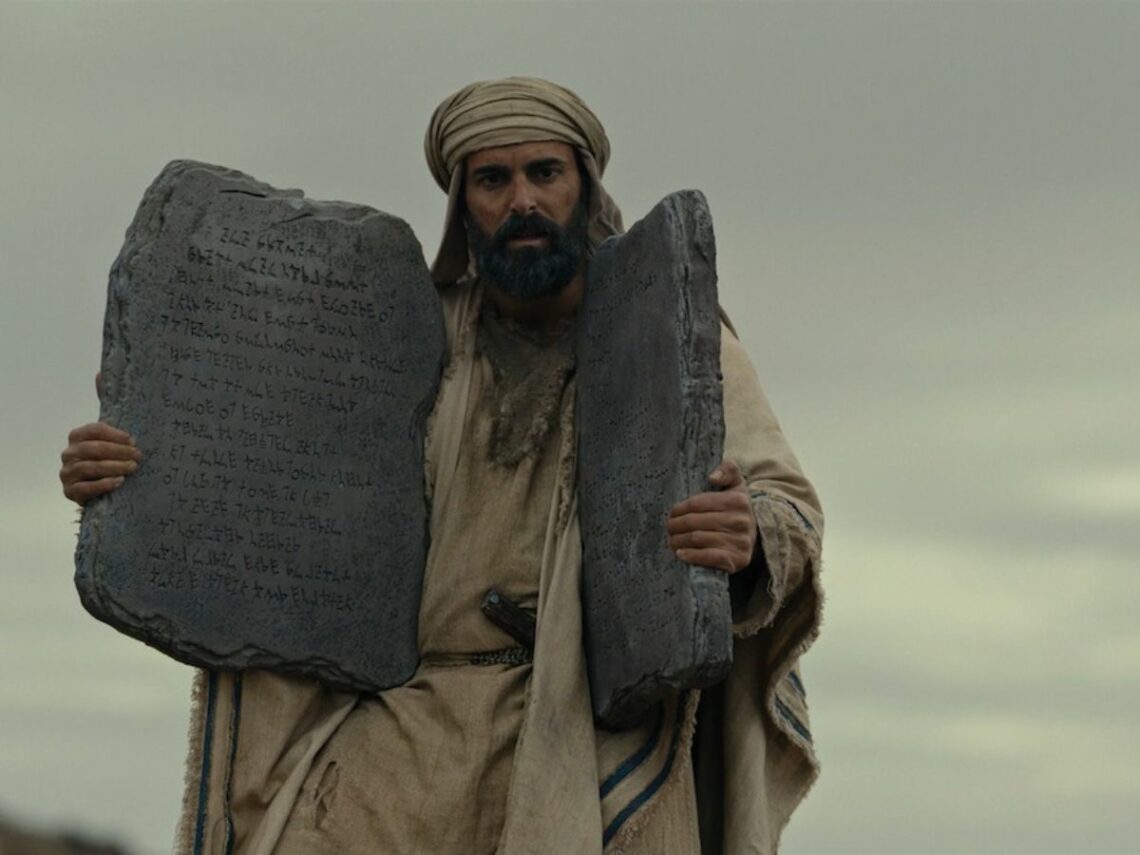Benjamin Ross’s low-budget retelling of Moses’s story in Testament: The Story of Moses has come under fire during these divisive times when land disputes are being weaponised by Israel to continue its brutal war on the Palestinians. The Netflix series, tagged as a documentary, is presented in three episodes.
The story of the folkloric hero, Moses, a central figure in Judeo-Christian tradition, has long been a subject of fascination and debate. From the miraculous parting of the Red Sea to the receiving of the Ten Commandments atop Mount Sinai, Moses embodies the archetype of the heroic leader and prophet. However, as with many religious fables, the historicity of Moses and the events described in the biblical account, particularly the Exodus, has come under intense scrutiny by scholars and historians.
Historically, there is scant evidence to support the existence of Moses or the Exodus as depicted in the Bible. Despite the prominence of the story in religious texts, archaeologists and historians have found little to no corroborating evidence outside of scripture. Scholars have not only failed to find archaeological evidence supporting the biblical account but have also raised questions about its plausibility within the context of ancient Egypt and the surrounding historical record.
Of course, the figure of Moses has inspired storytellers for ages, with Ridley Scott creating Exodus: Gods and Kings in 2014. Christian Bale’s Moses couldn’t save the film from becoming a financial debacle at the box office. The film was also accused of whitewashing for casting actors who were primarily Caucasian to play people of colour from the Middle East. But, what has been explicit in every other retelling of the Exodus story is that it is fictional, much in the vein of epics like Mahabharata and Ramayana, which have churned many adaptations of its stories rooted in good vs evil parables.
The most significant controversy surrounding the portrayal of Moses in Netflix’s Testament: The Story of Moses stems from the platform’s categorisation of the series as a documentary. This categorisation has understandably sparked criticism from viewers who argue that labelling the show as a documentary lends undue credibility to a narrative that lacks historical substantiation.
The portrayal of Moses and the Exodus as factual events, they argue, perpetuates a problematic agenda. Given how low media literacy skills have become over the years, it can very well mislead viewers about the historical accuracy of the biblical account.
On platforms like Reddit, users have voiced their scepticism, asserting that the Exodus narrative lacks historical validity and likening its portrayal to that of fictional stories like Mulan or Dracula, who are also ultimately folk stories that emerged out of historical events.
However, one could argue that Testament: The Story of Moses can be considered a documentary insofar as it explores various perspectives on the biblical narrative, including religious, cultural, and archaeological viewpoints. The series uses expert interviews and discussions to ponder the significance of Moses and the Exodus story within different contexts, which can also technically be used to argue that this fulfils the criteria to be called a documentary. Plus, clarification is provided at the start of the series, suggesting that the series is a ‘dramatic exploration of the story of Moses’.
American historian and semiticist William G. Dever theorises Moses is mainly mythical, suggesting “a Moses-like figure may have existed somewhere in the southern Transjordan in the mid-late 13th century BC” but “archaeology can do nothing” to prove or disprove it. While Testament: The Story of Moses has started a worthy debate, it should be noted that some people are tuning in to watch the series purely for entertainment purposes.
